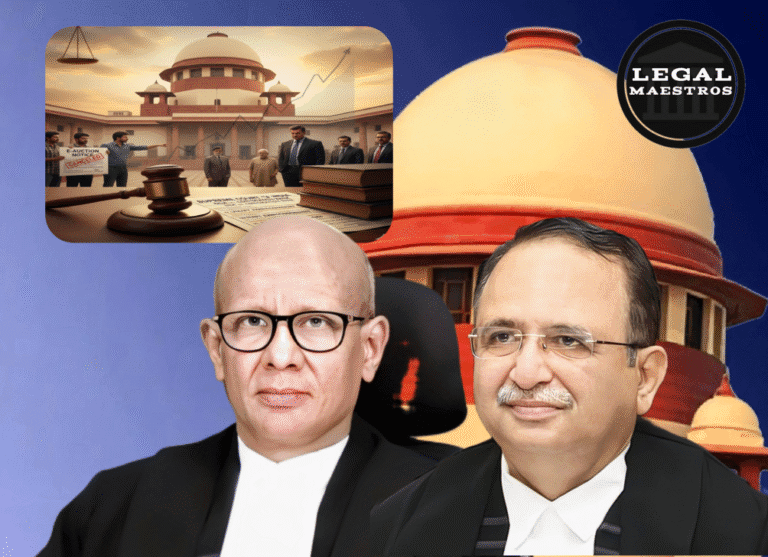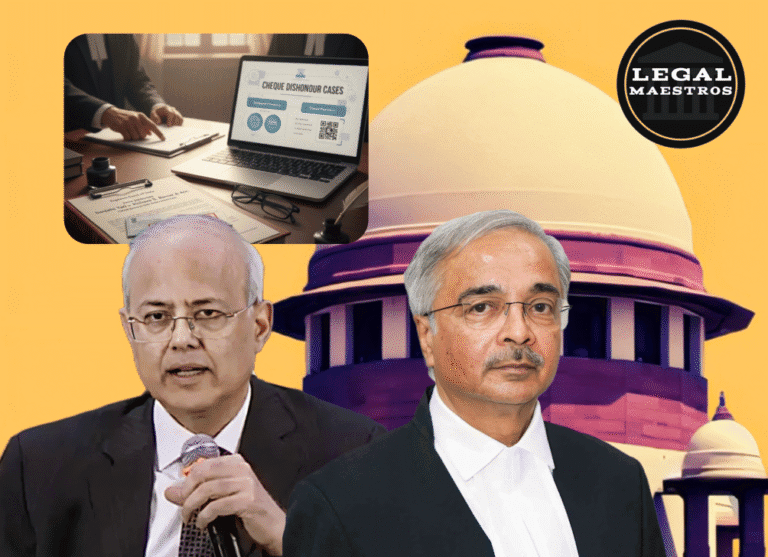
The Supreme Court in a sprawling decision made on August 5, 2025, addressed the uncertainty in Indian trust and charity law, regarding suits brought under Section 92 of the Code of Civil Procedure (CPC). The decision arose from the disputes concerning “Operation ASHA,” a public health NGO, where the founders were attacking one another on board in terms of management and financial mismanagement in the society, wrongful expulsions, including the Board members stabbing each other over in terms of society’s objectives. The Court undertook a rigorous analysis of decades of Indian, English, and American jurisprudence, distilling the law on “constructive trusts,” and articulating the test for when suits with respect to administrative relief, removal of board member(s) and settling schemes against societies can be brought.
Facts
Operation ASHA (ASHA) was created in 2005, is a not-for-profit society under the Societies Registration Act 1860, and operates in public health across India with an emphasis on managing tuberculosis care. In June 2020, serious allegations of financial impropriety, unprofessional conduct, and siphoning of funds were made against Dr. Shelly Batra (President and co-founder) by co-founder and Chief Executive Officer Sandeep Ahuja. Dr. Batra and her mother, also a board member, commenced proceedings using Section 92 CPC in the Delhi High Court seeking declarations to restore Dr. Batra’s position, remove the alleged perpetrators, appoint interim administration, and procure an audit of the society’s finances alleging serious breach of the society’s charitable obligations. Both the Single Judge and Division Bench of the Delhi High Court ruled that the suit could go ahead and treated the society as “constructive trust” and stated the allegations justified the need for some inquiry into the administration of the society. Operation ASHA, through its leadership, had appealed to the Supreme Court on the basis that a society is not a trust and therefore not governed by Section 92.
Issue
A society incorporated under the Societies Registration Act 1860 be regarded as a “constructive trust” for the purposes of Section 92 CPC, allowing a representative suit for mismanagement or breach of fiduciary duty, notwithstanding that it is not set up to be a trust or constituted as a trust?
The subsidiary issues included:
• What are the requirements for triggering Section 92 CPC?
• What constitutes an “interest in trust” and what remedies are available from the application of Section 92?
• Does it matter that a society is registered when dealing with constructive trust?
Judgment
- The Supreme Court dismissed the appeal of Operation ASHA, and permitted the suit under Section 92 CPC to proceed. The Court stated that:
- Societies are not “trusts” in the strict legal sense, but their governing bodies have strict duties to act as fiduciaries and apply assets only for public, charitable purposes, and in that sense function as “constructive trustees.”
- If there is strong evidence that society’s assets are being diverted or misapplied inconsistent with its stated public purpose, the courts may intervene under Section 92 CPC.
- In Operation ASHA’s matter, the claims of misappropriation, wrongful ouster, and signing authority on certain important matters by contested governing authority was sufficient to meet the threshold for the Court to establish criminal inquiry and reverse any wrongful acts.
- However, the Court clarified that Section 92 suits can not be seen as avenues for inquiry into personal disputes involving society members or day-to-day management conflicts, but rather only severely encumbered operations and funds affecting society’s charitable actions can relate to intervention.
Reasons
- In an extraordinarily articulated reasoning, the Supreme Court undertook a thorough panoramic review of Indian and international authority in relation to trusts and societies.
- Nature of Societies: Societies are not juristic persons like companies or formal trusts, therefore, societies can only hold property through governing bodies acting in a fiduciary capacity for public purposes.
- Section 5 of the Societies Registration Act: Act governs property of a society to be vested in the governing body, however, the property of the members of the committee or individual members cannot be for personal benefit. In this context there arises a fiduciary, if not explicitly legal, trust for the benefit of society purposes.
- Constructive Trusts: The court held that both in the United Kingdom and in the United States, a constructive trust can be implied even in the absence of an explicit declaration of trust, in cases where the property in question is held for public charitable purposes, and under fiduciary obligations to the public, particularly in the event of wrongdoing.
- Thresholds: The court encouraged lower courts not to permit judicial intervention unless there was a provable breach of fiduciary duty, a financial misappropriation of charitable funds, or an unreasonable neglect of public purpose.
- To prevent vexatious or trivial management disputes being litigious messes, the court emphasized that the greatest care should be taken that judicial power is only exercised for a genuine breach of fiduciary duty, financial impropriety in breach of fiduciary duty, or unreasonable neglect in the face of public purpose.
- Representative Suit: The court explained that Section 92 of the CPC is past the point of representative suits where public trusts and public charities are involved, where the beneficiaries of the public trust charity cannot litigate in their own names, and the misuse for personal disputes is to be avoided by internal stakeholders.
Significance
- Broadening the Law Surrounding Charitable Oversight: This decision greatly extends the application of section 92 of the CPC and now includes societies, where the intention and purpose of a society constitute a public charitable purpose, and while property is unambiguously designated for charity. To protect against mismanagement, courts will step in where there is a legitimate allegation of a breach of fiduciary duty, providing charitable societies, societies, and other non-profits with some degree of protection to prevent mismanagement.
- Clarification of Trust versus Society: The court provides definitive answers to queries that have existed for generations about whether societies can be civilly liable as a civil trust; it finds that societies can effectively be treated as trusts for purposes of public charity.
- Heightened Accountability: Board members of charitable societies can be taken to task for the high standards of probity expected of them, and questioned if they acted against the public’s best interests, or the stated objective of the society.
• Procedural Guidance: Not all issues may be addressed under Section 92; only serious issues that impact the public and charitable organization qualify for Section 92. Ordinary internal disputes of an organization or disputes about board elections will have to be resolved through different processes.
• Fit for the 21st century Non-profit Era: The Court acknowledged that NGOs and charitable societies are a vital part of India’s public welfare architecture, and must be simultaneously protected from both mischief and managerial abuse.
This Supreme Court judgment thus provides a clear, credible basis for both governance, and potential legal accountability on the boards of thousands of charitable societies in India: their boards have fiduciary duties, and if there is credible evidence of fiduciary breach that threatens the public interest, then Section 92 CPC will be available like it is for ‘ordinary’ trusts.



